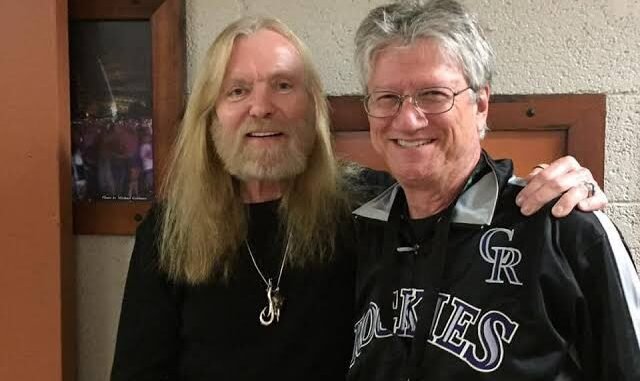
In 1968, a little-known yet fascinating moment in rock history occurred — Gregg Allman, who would later become a legendary figure as the co-founder of The Allman Brothers Band, auditioned to join the pioneering country-rock group Poco.
At the time, the band Poco was just beginning to form out of the ashes of Buffalo Springfield. Richie Furay and Jim Messina, both former members of Springfield, were assembling a new musical project that would help define the genre of country-rock. Their goal was to blend rock ‘n’ roll energy with country harmonies and instrumentation — a bold and fresh direction at the time. During the early lineup formation, the band auditioned several musicians for the role of lead vocalist and keyboardist.
Among those hopefuls was a young Gregg Allman, not yet famous but already honing his soulful voice and blues-drenched keyboard style. Allman had been performing with his brother Duane in various groups across the South, and while he was more rooted in blues and Southern rock, he was seeking opportunities to grow and break into the music industry.
The audition didn’t lead to a spot in Poco for Allman. Though undeniably talented, his raw, bluesy style ultimately didn’t align with the more polished, country-infused vision Furay and Messina had for the band. Poco went on to solidify its lineup with Randy Meisner, Rusty Young, and George Grantham, quickly earning praise as a founding force in the country-rock movement.
As history would have it, the paths of Allman and Poco would diverge — but both would leave an indelible mark on American music. Gregg Allman would soon return to the South, rejoin his brother Duane, and help form The Allman Brothers Band in 1969. With their gritty blend of Southern rock, blues, and jazz influences, the Allman Brothers became icons of a different but equally groundbreaking genre.
This brief intersection between Allman and Poco is a reminder of how fluid and interconnected the music scene was in the late 1960s. Bands were being formed, re-formed, and reimagined constantly, and the “what-ifs” of these moments are intriguing. What if Gregg Allman had joined Poco? Would country-rock have sounded more like Southern blues? Would the Allman Brothers Band have ever come to be?
Though his time with Poco lasted only an audition, the encounter reflects the vibrant, experimental spirit of the era — a time when musical legends were still unknown, knocking on doors, and searching for the right stage to tell their stories.
Leave a Reply